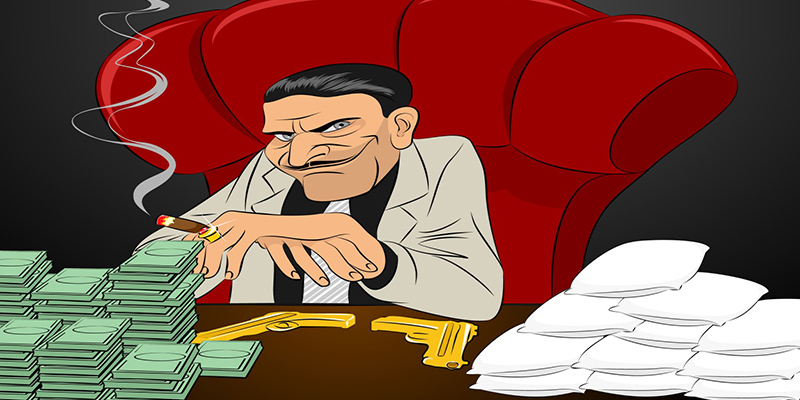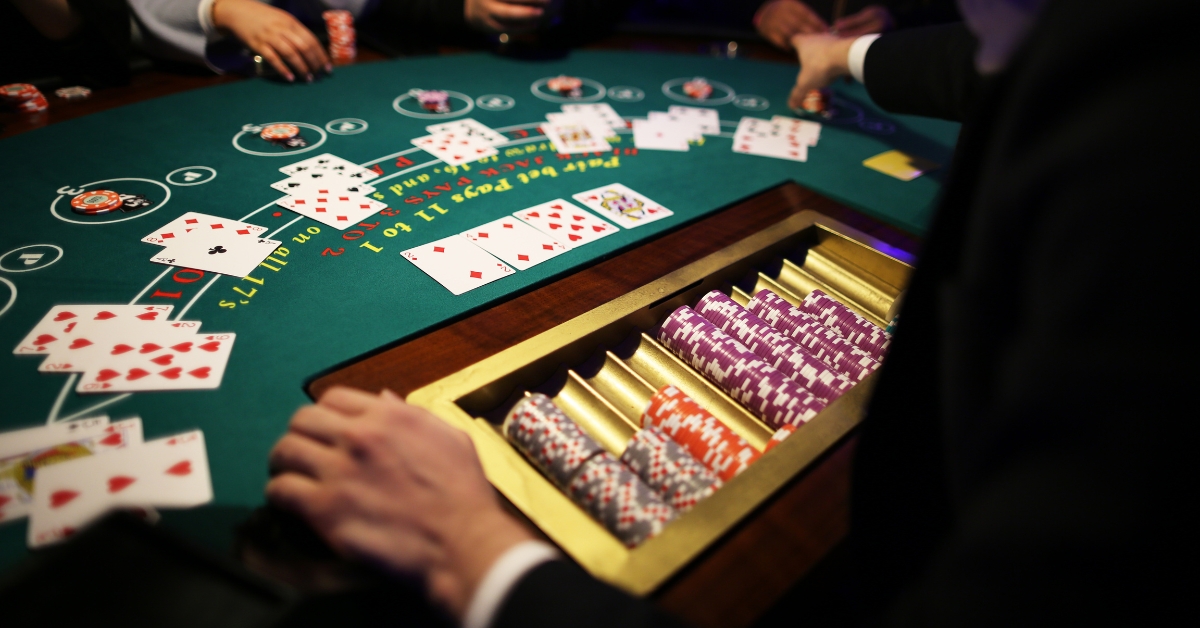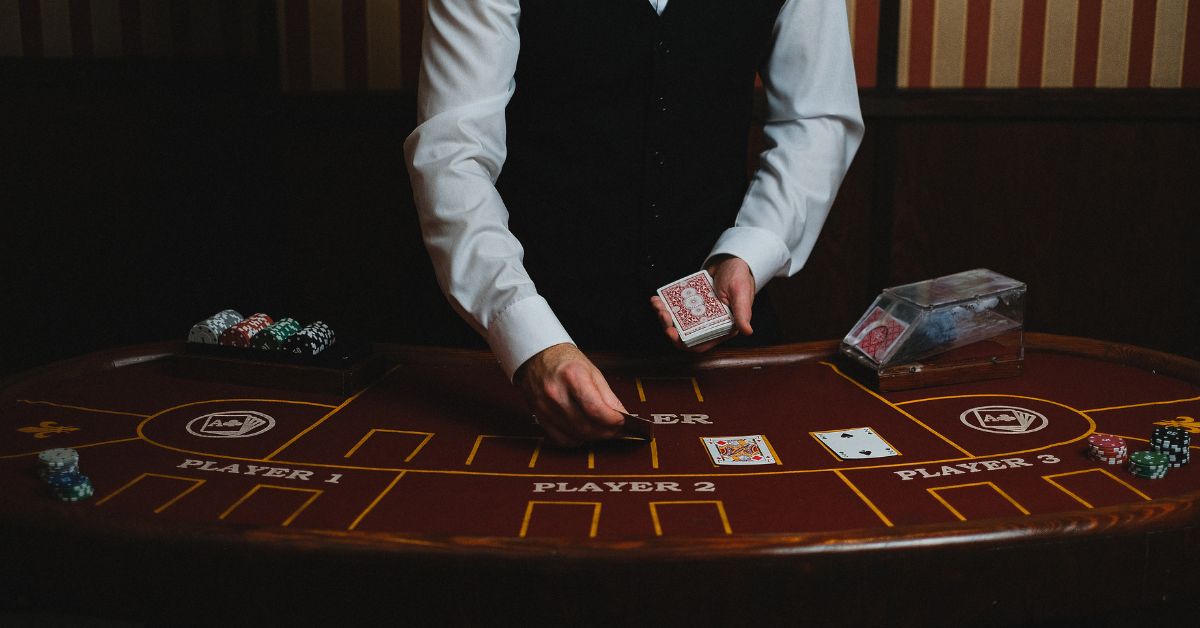Gambling Legends: A Complete Story Of Bumpy Johnson
Unveiling the enigma of the Great Bumpy Johnson, delve into the extraordinary life of this Harlem legend. From book producer to gang boss, drug lord to devoted family man, witness the captivating story of a man who defied expectations.
Explore the paradoxical existence of a figure who ruled the criminal underbelly with an iron fist while displaying surprising acts of kindness. Ellsworth Raymond Johnson's legacy remains a compelling tale of power, compassion, and the complex dynamics of the 20th-century crime scene.
Who Was Bumpy Johnson?

Ellsworth Raymond Johnson was born on October 31, 1905, in Charleston, South Carolina. His nickname "Bumpy" is derived from an injury he suffered as a child that created a large bump on the back of his head. Even so, some have suggested that the moniker comes from enemies he "bumped," or in other words, murdered by him.
Over the course of more than four decades, Bumpy Johnson committed countless crimes, leading to him spending more than 20 years of his life in and out of America's most notorious prisons. During his illustrious career, Bumpy was known as a bookmaker, bodyguard, and drug lord. On the other hand, Bumpy was also known for his beautiful soul. He was a widely admired poet, philosopher, philanthropist, and devoted father who loved his family.
Johnson's race has always been the source and motive of his most representative crimes. This black man had to escape from prison to avoid racial persecution. Later, he himself became the first black man who was able to fairly negotiate an end to the war between the Harlem bookies and the Italian mafia.
Bumpy Johnson died in 1968 and is widely recognized as an anti-hero in Harlem, the city where he spent most of his life being a drug lord and philanthropist, and at the time.
Read more: Dana White - The Stories of a Gambling Legendary
The Story Of His Early Life

Ellsworth Raymond Johnson was born in 1905 in South Carolina. In the context of society at that time in the Segregation Era, the poor boy grew up in a chaotic and brutal time of racism and oppression against black people. However, that's not just Bumpy's problem, as racial violence has put his entire family in jeopardy.
Bumpy's connection to the city of Harlem, 750 miles away from where the boy was born, dates back to when he was ten years old. Willie Johnson, Johnson's brother, was accused of killing a white man. Willie was transferred to live with family in Harlem because he feared being attacked by a lynch mob.
Not long after that, Bumpy was moved to live with Wille in Harlem to ensure the boy's safety. But, that inadvertently created a turning point for Bumpy's life, when in Harlem, Bumpy would become one of New York City's most prominent crime lords.
By 15, Bumpy had made friends with a rogue mob. Since then, he started doing all kinds of jobs for a living. From playing pool to shooting dice, things that marked Bumpy's start with gambling.
Johnson met William "Bub" Hewlett, a criminal who admired Bumpy's bravery when he refused to leave Bub's business when he was young. Bumpy was recruited to work with him, defending Harlem's top athletes. He afterward met Natt Pettigrew. In classic mafia fashion, all three of them began working as money collectors to safeguard local businesses.
His Career Bloomed And How Did His Illegal Casino Operations Start?
Over the next ten years, Bumpy's offenses as a member of the mafia protection gang led him to spend most of his time in prison. However, Bumpy's turning point only came at 32, when he met and started working for Stephanie St. Clair because he was so impressed with this girl's style.
Stephanie St. Clair, often known as the Madame or Queen of Numbers, gained her early income by selling controlled pharmaceuticals. She then played the number game, an illegal lottery popular in the slums in the early and mid-1900s. The number game, also known as the Italian lottery or the Italian lottery, involves gamblers attempting to match three numbers that will be picked at random the next day. The game is mostly played in impoverished and working-class communities, with stakes starting at as little as one penny. St. Clair's earnings from these activities were $20,000 per year in the 1920s.
This was critical for Johnson because he would one day control St. Clair's business and the lucrative numbers game. However, he was originally hired on board to protect against legendary mobster Dutch Shultz, also known as Baron Beer Bronx. However, things really got started when St. Clair became aware of Johnson's reputation as a fearless and vicious bodyguard of Shultz.
Dutch Schultz, the boss of the Bronx mob, was the first and most ruthless gangster to move to Harlem after the Prohibition Era ended in the early 1930s. He operates similarly to Bumpy before but with far more terrifying brutality. He beat or even killed those who refused to pay his protection fees. That behavior, of course, forces independent bookmakers to work for him and be under his control.
Stephanie St. Clair, one of Harlem's only female tennis players, refused to back down. Instead, she enlisted his assistance, and, along with him, they wage battle against New York's most notorious criminal leaders. This, in turn, ignited a deadly battle in which Schultz's gang slew some St. Clair residents.
Schultz's effort to dominate the number game was thwarted in 1935 when the Italian mafia's Charles "Lucky" Luciano launched an attack on him. Schultz's death caused St. Clair to feel a little intimidated. She decided to stay for a while and hand over the entire business to Bumpy Johnson.
Johnson then went on to be accused of kidnapping and murdering more than 40 people after St. Clair had withdrawn from Harlem racket activities. The two of them met again in 1932 after he was released from prison for those acts.
However, that was also the time when Bumpy's career had a bright spot. After Schultz's death, Johnson and Luciano decided to work together to form a criminal alliance. The two agreed that Johnson could manage all racket activities in Harlem in exchange for an income cut. Although the settlement wasn't flawless, Bumpy achieved something that few had done before: he negotiated and stopped the bloody battle with the mafia.
This deal meant so much to the people of Harlem; that's when they realized for the first time a black man had stood up to a white mob instead of bowing and conciliatory.
The negotiations sent Johnson's reputation through the streets of Harlem. People admire him because he stood up for his community and won. After that, Bumpy officially ran the underground casinos in Harlem.
Expanding The Business
Johnson was also involved in the drug trade, mostly selling heroin, in addition to the narcotics transaction. Bumpy rose through the ranks of his gang to become Harlem's boss. Johnson must now authorize any and all illegal business operations.
Bumpy's proceeds will go towards helping Harlem's most needy residents. In addition, he provided free Thanksgiving feasts, gifts, and turkeys, as well as sent students from low-income households to college.
As a result, he becomes a tricky coin with two sides: the homicidal criminal leader on one side and the benign Robin Hood on the other.
The Time In Alcatraz
Bumpy was to 15 years in jail for conspiracy to sell heroin in 1952, the longest term he would ever serve. Despite his appeal, the sentence was maintained, and he was transferred to Alcatraz, America's most famous jail.
Johnson served ten years of his 15-year term in jail. However, unconfirmed allegations state that he utilizes his outside connections to assist three detainees in escaping during this period.
Bumpy was welcomed back to Harlem with a huge procession after serving time in Alcatraz. Bumpy returns, however, to find that the Italian mafia has broken the narcotics trade in Harlem.
Even so, that was not the biggest shock for Bumpy. He discovered that his daughter was addicted to Elise, one of the synthetic drugs he sold. Then, Johnson's life changes completely when he did everything to save his daughter by trying to completely eliminate drugs from the entire Harlem neighborhood, which made him an actual Robin Hood.
Influential People To Bumpy Johnson's Life?
Bumpy's family exemplifies the moral uncertainties that surround his existence. After completing a 10-year jail sentence for different offenses, he met his wife, Mayme, in 1948. Despite her knowledge of his criminal past, the pair married three months later and remained together until his death.
Bumpy's relationship with his daughter Elise is similar to a clash of his two personalities. Despite being a family guy, Bumpy is alienated by his daughter, who despises Bumpy because she helps her miserable life is the result of her father's heroin trade. As a result, bumpy and Mayme ended up parenting Elise's kid as their own grandchild.
Malcolm X
Malcolm X began to shed links with Johnson's legendary criminal at the end of his life. Prior to then, the two were good friends. Bumpy had known Malcolm X since the 1940s when he was a street hustler. When Malcolm broke away from the Nation of Islam, and his adversaries began chasing him, he even joined Bumpy's bodyguard services.
Finally, Malcolm X determines that his relationship with a notorious criminal will harm his reputation and requests that Bumpy reduce his guards. Unfortunately, only a few weeks later, he was assassinated.
Despite his ultimate separation from Johnson, Malcolm X has always appreciated Bumpy for his brains and artistic ability. Specifically, during the Harlem Renaissance, Bumpy's artworks were featured in a variety of prominent journals.
Bumpy Johnson Depictions in Pop Culture Movies
Johnson has appeared as himself or as the idea for a loosely based character in several on-screen cartoons.
Johnson had his first appearance in popular culture in the 1971 smash picture Shaft, playing the character "Bumpy Jonas."
Characters based on Johnson appear in many more films, including Come Back Charleston Blue (1972), Escape from Alcatraz (1979), The Cotton Club (1984), and Life (1999).
Hoodlum (1997) was the first film to represent Bumpy Johnson as himself, and it was followed by Ridley Scott's legendary biography of his life, American Gangster (2007).
The Godfather of Harlem, a 2019 drama on Epix, is the most current and probably most famous portrayal of Johnson's life (2019). The series, which follows Bumpy's release from Alcatraz, has received several award nominations.
Off-screen, Prodigy's post-jail record, The Ellsworth Bumpy Johnson EP, and The Bumpy Johnson Album have all been dedicated to Bumpy Johnson.
Read more: Whale Gambling: Definition, Character & Gambling Locations
His Last Moment In Life And His Lifelong Legacy
Bumpy Johnson died in 1986 amid yet another human trafficking accusation. Bumpy died of a heart attack, signaling an unexpected surrender (or rather resistance) to his decades-long criminal career.
Despite many attempts at his murder by drug lords and mafia organizations, cholesterol eventually killed Harlem's most prominent criminal leader.
His wife, who would outlast Johnson by 41 years, observed that that was the greatest way for Bumpy, or any guy, to get through. "Bumpy's life may have been violent and volatile, but his death was one that every Harlem sportsman would wish for - eating fried chicken at the Wells restaurant at midnight surrounded by friends," Mayme recounts. It couldn't get much better than that."
Bumpy Johnson, in the end, is a character midway between human and myth.
Although Johnson is well-liked by the Harlem neighborhood he serves, his riches were obtained mostly via reprehensible tactics that have hurt the very community he serves and helps. Specifically, flooding the streets with narcotics and utilizing the proceeds to benefit the community.
Johnson's life has been affected by the racist violence he witnessed as a youngster. After being sent to Harlem, Johnson learned to fight and stand up to the people in power.
He conducted and won a violent fight with Dutch Schultz on the advice of Stephanie St. Clair. He eventually succeeded in bringing the struggle between Black Harlem and the white Italian mafia to a conclusion.
Johnson enjoyed a glamorous life filled with glamor and glory thanks to drug earnings. During that time, he assisted the beleaguered and impoverished Harlem. Bumpy's life, on the other hand, is full of inconsistencies.
Many of Harlem's young men were able to attend college and climb beyond their low-income backgrounds because of him. Unfortunately, however, many people died as a result of him.
After four decades of crime, Bumpy Johnson died surrounded by his dearest pals (and over 40 arrests).
Bumpy's legacy is one of the most renowned gang bosses of the twentieth century.
















